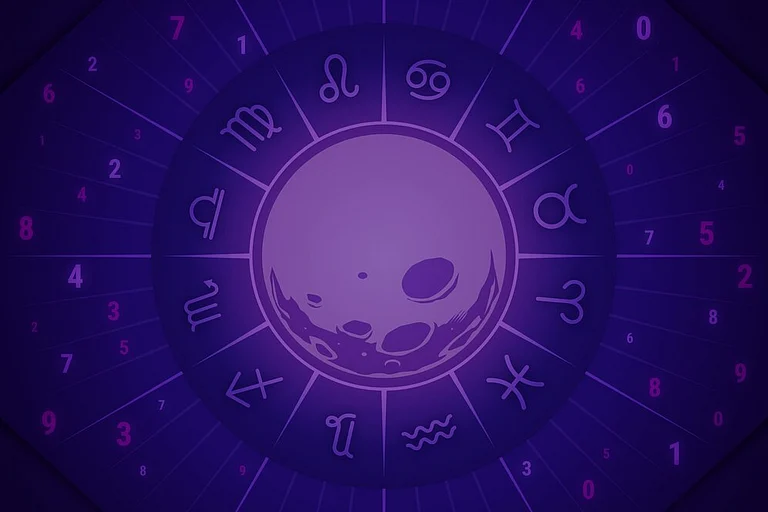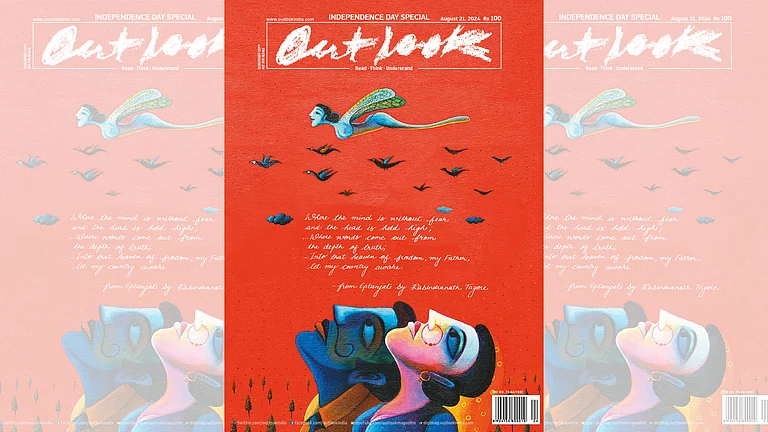If it’s June, it must be Wimbledon on the sporting calendar. Green grass.White clothing. Blue skies that turn grey and blue again just like that. Redstrawberries. Colourful crowds. Colourful, and some colourless, players. And,some good ol’ fashioned lawn tennis, the way it was intended to be played.After months of watching players slug it out on clay in matches that would testthe patience of even the Test cricket buff and the cleaning prowess of washingmachines, it’s a blessed relief to see tennis visit its roots.
The shift in geography, from the red dirt of Paris to the green grass ofLondon, will result in subtle linguistic changes, which will underscore amomentary shift in the balance of power on the men’s circuit -- away from theSpanish-speaking swingers to those inclined to use the Queen’s language. Oncourt, "vamos" will at last give way to its distant English cousin"c’mon" as the most-spoken word of the fortnight. It will be a briefinterlude, a fortnight at best, but a welcome one.
Much as we clamour for change and newness of things, some people and thingsremain special for the very reason that they are caught in a time warp, in agenteel, comfortable place. The joy of being one with their experience is partlyin knowing beforehand what lies ahead at every turn, and of the same, familiarscript being enacted over and over again.
Wimbledon is one of those charming sporting events that continues to stand bytradition without appearing outdated (mostly), stir up nostalgia while makingpeople smile, arouse passions without breeding animosity. Year after year.
Yet again, Tim Henman and Greg Rusedski will kindle British hopes that thiswill be the year when a homegrown man (or adopted son) finally puts the ghost ofFred Perry to rest and lifts the coveted trophy. They’ll be reminded that theyhave been saying so for the past five years, with Henman reaching the semis asmany as four times, but in a tussle between reason and passion, where doesreason stand? Instead, they’ll cling to hope, cite the law of averages, thedearth of grasscourt specialists, and what have you.
Hen-mania will sweep Wimbledon. The unlucky hordes who don’t manage to finda way in to Centre Court will squat on ‘Henman hill’, the lovely grassyknoll outside with the giant TV screen, and scream and sigh in tandem withHenman’s game.
Perhaps, the skies will open up and play havoc with schedules. But, many won’tmind. Sir Cliff Richard, resident tennis expert and crooner, will once morerevive the swinging sixties on Centre Court. Londoners will hope that, to makeup for lost time, play will take place on the first Sunday of the tournament andit will be declared a People’s Day, with tickets being sold on a firstcome-first serve basis. They’ll pack up their house, join the snaking queueleading up to the All-England Club in the evening to buy tickets for next day’smatches, happily park themselves on the pavement, stay up all night, andgenerally try and come up with a whole lot of ways to have a whole lot of fun.
Court 2 will try and live up to its reputation of being the "graveyardof champions". Each time a seeded player steps on it, we’ll wait withbated breath to see whether they are dead and buried, or whether they live tofight another day. During the first week, many seeds, specially those who lookupon the court as a minefield and prefer to play from behind the baseline, willbe scalped; some big cats will fall by the wayside.
A lot of big cats will be missing -- and they’ll be missed dearly. Sampras,Krajicek, Sanchez-Vicario, Ivanisevic, though the Croat has done half hisWimbledon role by serving his quota of verbal aces while announcing hiswithdrawal from the tournament. "When I came in 2001 as a wildcard and wonthe tournament, I said to God, 'just let me win this and I don't care if I neverplay tennis again.’ I kept asking God to give me one more chance. Probably heheard me and he is thinking, 'What are you doing here, go home.' It is not soeasy to negotiate with the guy upstairs, he is non-negotiable." For goodmeasure, he added deadpan: "It's like going to Rome and not seeing thePope; it's frustrating to come to England and not go to Wimbledon. I don't wantto go there and crawl like a pig on Centre Court. If I cannot serve, then thereis not much for me to do on the grass. Perhaps, I can cut it or help draw thelines. Or even serve some strawberries."
A bunch of players in the main draw could sign up to give the grass courts amanicure or serve strawberries, and the fans won’t mind. If variety is thespice of life, the current lot of tennis players are trying hard, from thebaseline, to dispel that notion. And, you know what, they are winning.Serve-and-volley tennis on the men’s circuit is going the dinosaur way.
Women players embraced the baseline years ago, with reason: you are a sittingduck if you tried to follow a meek serve to the net. But the men, with theircannonball serves? With surfaces getting slower, balls being made slower(ironically, to rein in the big servers), the time of serve-and-volleyers hascome and gone. Serve-and-volley will help you do well at Wimbledon, but withthat game, you’ll be murdered the rest of the year. Not surprisingly, kids areadvised not to base their natural game around it anymore. It makes the tennismore monotonous and less interesting.
Purists might scoff, fans might complain, but bookies love it. When was thelast time the men’s title race looked as open as this? You’d have to go to1973, when a players' boycott severely depleted the field. Since then, a handfulof players have made grass their preserve and practically ruled Centre Court.Borg, Connors and McEnroe gave way to Becker and Edberg, and then Sampras tookover. And all along, snapping at their heels were quite a few fine grass-courtplayers, who, on their day, could easily wipe the leading lights off court.
This year, the highest seeded natural serve-and-volleyer is Henman, and he isseeded as far back as tenth. But even he would fancy his chances, much likeother serve-and-volley specialists like Mark Phillippousis, Rusedski, TaylorDent, hell, even, Max Mirnyi would consider himself in the mix. Strangely, sowould the back-courters, knowing that most of the two-step dance artists arebasically rhythm players and have big issues with consistency. Hewitt, Agassi,Roddick… Defending champion and top seed Hewitt, a hound dog on court, has adraw filled with floaters, and will have his hands full. It’s all set upnicely for Agassi, who is loved by Wimbledon, has learned his way on the grassand has a relatively favourable draw.
On the women’s (at Wimbledon, for official purposes, they continue to beaddressed as ‘ladies’, and the men as ‘gentlemen’!) side, the debatewill be as much about who will win as about the inequity in prize money. Anotheryear, the All-England Club, in one of its rare misdemeanours, will pay womenlower prize money than men. Noises will be made, but tennis will go on. TheBelgians, Kim Clijsters and Justine Henin-Hardenne will look to continue theirwinning ways; the bevy of upcoming Russian players will look to make a mark onthe grass. But on these fast courts, it’s hard to look beyond the Williamssisters.
Wimbledon has become the keeper of dying art forms in tennis, if not bycircumstance, then by design. It’s the only Grand Slam, for that matter, theonly tournament, that gives doubles a place in the sun. It’s an intent that isexpressed in various ways. Like scheduling interesting doubles match-ups on theshow courts, even during the first week of the draw, when too many matches haveto be crammed in (look out for Paes and Navratilova, in what, she says, will beher final appearance here). Or like sticking with the best-of-five sets formatfor men’s doubles, right through the draw, which makes more demands on playersand gives it a Slam feel. Gestures such as these make Wimbledon special, forjust about everyone involved, barring those who speak Spanish and have afondness for clay.
From this year, another quaint practice that defined Wimbledon, of playersbowing to prince and princess, duke and duchess, in the royal box, has been doneaway with. Out of habit, though, as they walk on to the historic and hallowedCentre Court, some men will bow, some women will bend their knees and go throughwith the curtsey anyway. They’ll laugh about it, along with the best tenniscrowd in the world, and it’ll become another yet Wimbledon moment.
Come Monday, 1 pm, Greenwich Mean Time, as Hewitt and qualifier Ivo Karlovicwalk through the tunnel leading on to the Centre Court for the opening match,perhaps, their eyes might catch lines from Rudyard Kipling’s immortal poem ‘If’scrawled above the door that opens to the court:
"If you can meet with triumph and disaster
And treat those two impostors just the same."
It’s a powerful reminder that no other tournament holds these words closerto its heart. Let’s play.

























